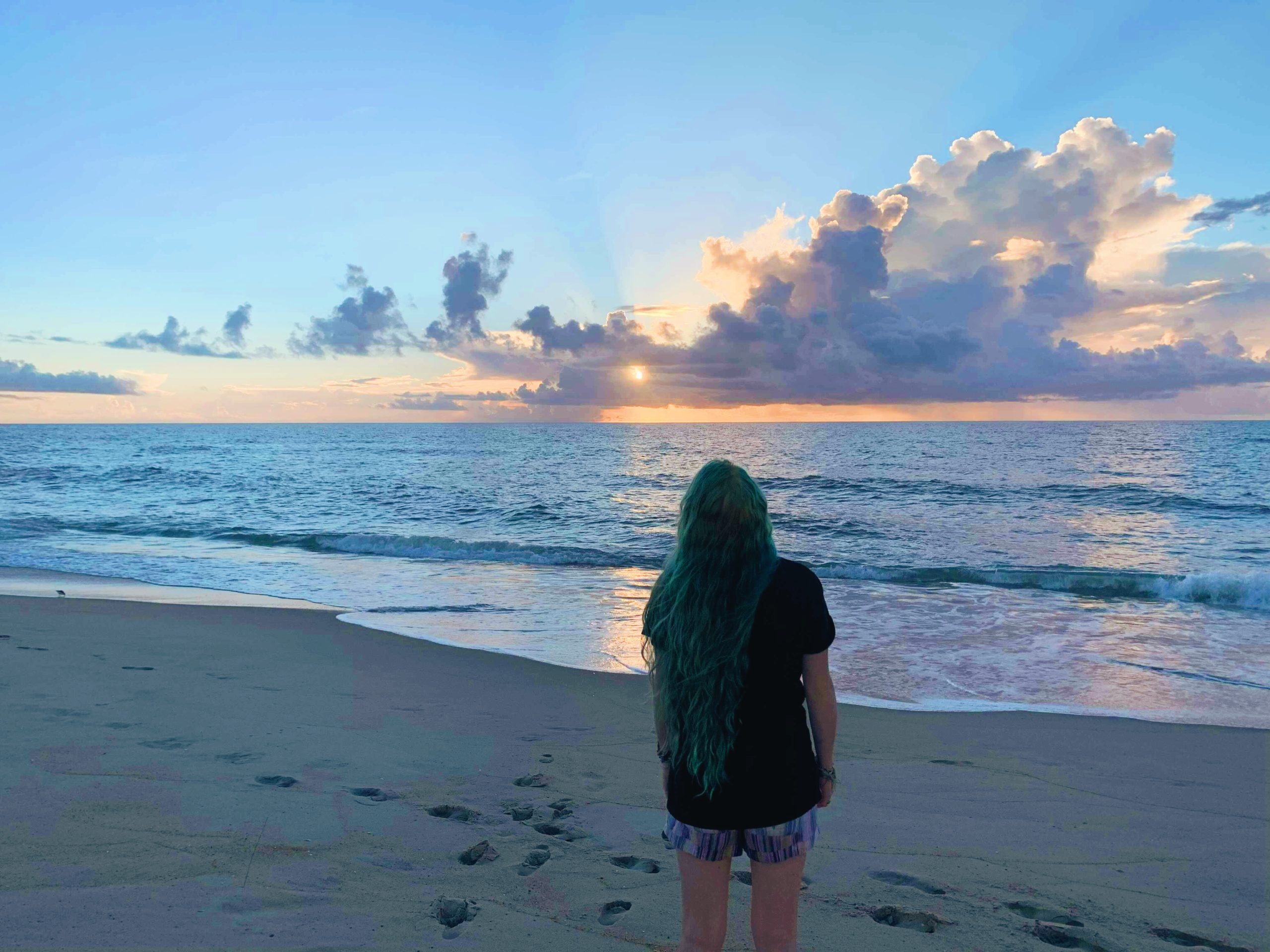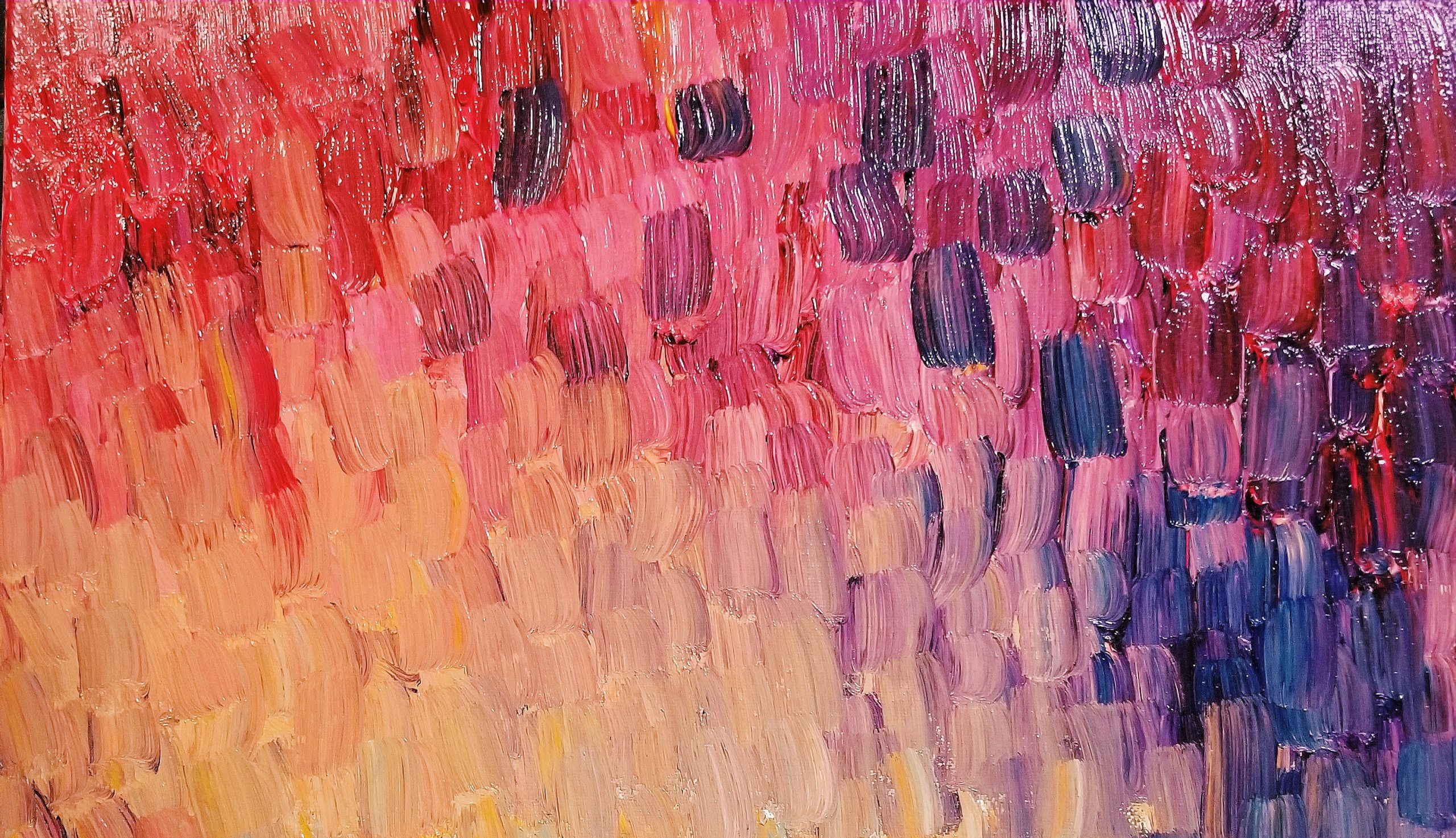
Spirituality has become a pretty loaded word. Many think that church-goers own it. Others think that being spiritual means believing that crystals can heal cancer and auras are the ultimate tell-alls. The truth is, I have had a pretty complicated relationship with the word and concept in recent years. When I was 16 I joined a cult with my family, and suddenly being spiritual meant being totally invested and buried in doctrine and teachings from that cult. It meant crying in church as I “bore my testimony” and reading the Book of Mormon. When I found out about the cover-ups, fraud, and lies of the religion (as well as the oppression, pedophilia, and violence of it), it was rough journey out of it. I lost most of my connections, my faith in myself, and my comfort with any religion in general—something that I thought one had to have to have spirituality. In the beginning, I was so tempted to go back constantly because I felt that the only way to feel close to myself and to something bigger than me was to be a member of that cult. Why wouldn’t I feel that way? That’s what I was indoctrinated to feel and believe by the cult. It was hard to imagine a life after it. It was hard to imagine that there could be spirituality and much of anything in a post-cult life, because when you lose something that defines you and your choices, you suddenly feel very broken. When your dearest friends are tossing you away, you suddenly feel disposable or crazy, or both.
After almost five years of learning to trust my gut, and of getting a grasp on reality and science again, I have changed a lot. Not only have I become a stronger and more confident person, but I’ve developed a healthier relationship with religion, spirituality, and science. A big part of my college degree involves religious studies, and it’s not a trigger for me anymore to learn about different faiths (although cults are still deeply triggering for me). While I identify as agnostic, I find them all absolutely fascinating, and I have borrowed different ideas from many of them (mainly Eastern religions and Paganism). I can find value in many of them, and through the study of them have learned that none of them own spirituality as the cult preached to me. None of them have a monopoly on it, and neither do the people who practice them.
Just because you go to church doesn’t mean that you’re spiritual. Just because you don’t go to church doesn’t mean that you’re not spiritual. Religions aren’t spirituality. They can sometimes act as mediums for people to get in touch with their spirituality, but they are not spirituality itself. They are rules, dogmas, and morality guidelines at their best. At their worst, they’re oppressive institutions that advocate against human rights, control and isolate members, and encourage violence. Spirituality isn’t attached to any of that. It never was, but in order to retain membership, churches since their beginnings have preached that they are the only intercessor between us and spirituality. They taught that enlightenment, centeredness, and sacredness can only be attained through attendance. They still preach that, so avid church goers often have the misconception that they’re the only ones with truth, and everyone else is lost, unspiritual, or too “worldly.” It keeps them inside their institutions, and in the case of cults, it ensures lifetime membership. I was an outlier in regards to that, so I had to unlearn all of this.

Painting can be spiritual.
While spirituality is deeper than church, it can involve it. It’s deeper than astrology but it can involve that too. Spirituality is merely feelings of being closer to yourself; to your core. It’s that swelling of your heart that you feel when you do something kind for someone. It’s the way you cry when you see something especially beautiful for the first time. It’s bigger than us, and it’s what it means to be in touch with all of this—the universe, nature, heaven, whatever you prefer to call it. A religion is not a one size fits all pattern for foolproof spirituality. They often inhibit people from it, since it’s attached to this idea that feeling spiritual is conditional on whether or not they stay in that religion or keep paying them money. That’s conditional spirituality, and it goes away when the person grows too big for a patterned faith. Religions can help people feel spiritual, but they shouldn’t be used as primary means to feel that way. They should accentuate it, not claim it. The same goes for any New Age concept. Listen to your gut and follow what calls to you. If religion is a part of that, great. Incorporate it into your life, but don’t ignore the other things that call to you as well. I use Pagan practices and Buddhist practices to get in touch with my spirituality, but I also use walks in nature, meditation, painting, and other non-religious things. There is no wrong answer. Spirituality is abstract, and that will always be the bottom line. It’s not meant to be treated as a byproduct of something as sterile and stringent as strict religious practice, and it should never be an excuse for supporting oppressive religions or groups in general.
In the past few years, I’ve finally gotten back in touch with my own spirituality. It wasn’t a purposeful thing, but rather something that just came with living authentically and trusting my gut. I didn’t join another religion. I didn’t get really into chakras. I didn’t take a vow of silence. I just lived in a way that was true to myself, treated myself and others well, and followed what called to me. Now, I recognize that I’m a very spiritual person. I feel spiritually about nature. I feel spiritually about ahimsa and doing no harm to others. I feel spiritually about slow living, seizing the day, taking in every moment, and exploration.

Curiosity, love, discovery—all of these have been ways that I get in touch with my spirituality. I recognize that’s not what does it for everyone, but it’s what spoke to me in this way. Pay attention to what makes you feel that way. When you do feel especially soulful? When do you feel larger than life, closer to the universe, or in awe? Mentally (or literally) note when that is, and seek those times out more often. If you feel spiritual in the woods, go hiking more often or decorate your home with pictures of the woods and pine cones. If watching the sunrise does that for you, wake up earlier to watch it more often, try painting the sunrise, or when you travel (post-COVID) try to schedule your flights where you’ll be in the air as the sun comes up. Listen to yourself, and take notice of what speaks to you. We often know ourselves better than we realize, but we don’t make space for what we’re comprised of.

Eating can be a spiritual experience. I feel in touch with my spirituality when I eat whole foods from the Earth.
If you want to feel spiritual and get in touch with that side of yourself, you have to make space in your life for things that are spiritual to you. Notice what songs hit you especially hard, what places speak to you, what practices make you feel closer to yourself, what you’re naturally drawn towards, and everything that seems to matter to you. The more you fill your life with those things, the more spiritual you’ll feel. Maybe studying your astrological birth chart makes you feel something. Maybe yoga, walks at sunset, or painting with specific colors does. Maybe meditation does. It’s all valid, and while society has crafted boxes for us to fit ourselves and spirituality into, we don’t have to comply. Listen to your gut. Look around. Colors, places, songs, hobbies, times of day, elements, and whatever touches you can be a means to get in touch with your spirituality. Every being is unique, and therefore so is their spirituality. That will always be the bottom line, so embrace it, and understand that it’s okay if your spirituality doesn’t make logical sense. It isn’t meant to. It’s meant to bring you closer to yourself, and help you live a soulful life. Anything that helps you do that, is a valid way to be spiritual, period.

Get more like this—Sign up for our daily inspirational newsletter for exclusive content!
__
Photo: Emily Iris Degn




